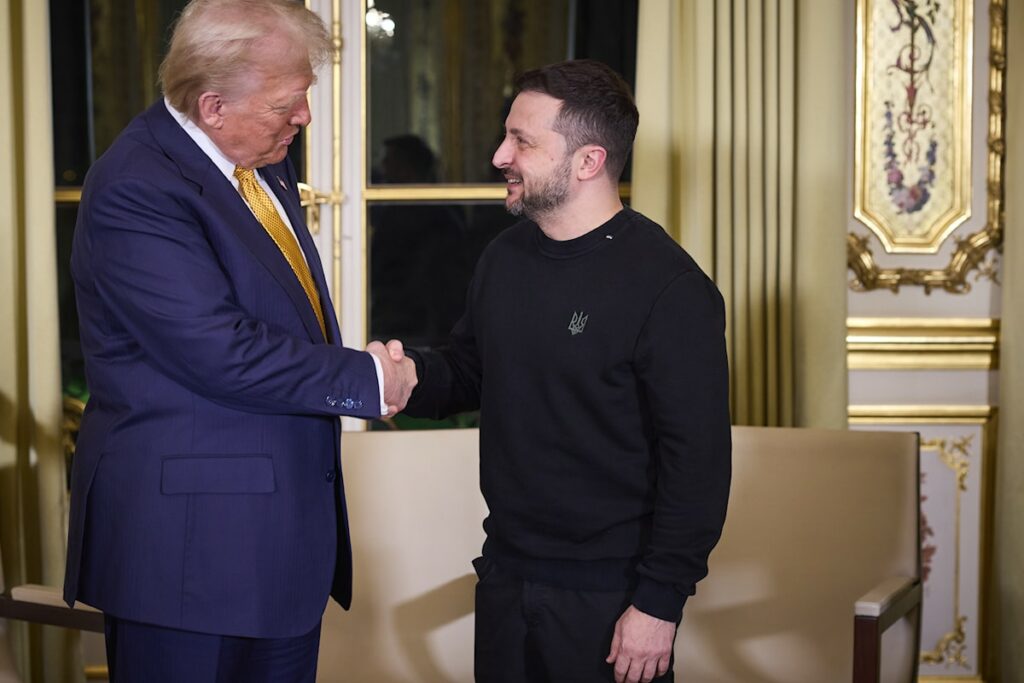This is the final part of Barry Zellen’s series on U.S. president-elect Donald Trump and his expected foreign policy. As we look forward to Trump 2.
This is the final part of Barry Zellen’s series on U.S. president-elect Donald Trump and his expected foreign policy.
As we look forward to Trump 2.0 in the Arctic, we can thus be prepared for many new surprises – such as a more inclusive approach to tribe-state relations than we saw under the Biden years that shunned Indigenous consultation and inclusion in its effort to isolate and encircle Russia, which is the most diverse, populated, economically developed and territorially significant of the Arctic states.
We can also look forward to an end to America’s own “green colonialism,” and a more robust integration of Alaskan resources into America’s growing energy independence, with more federal support for oil and gas development, and new mining ventures – joining Russia, Canada and the other Arctic states in their continuing efforts to develop their vast repositories of Arctic resources, enriching their Arctic peoples along the way. As for Greenland, we can anticipate continued creative and dynamic diplomatic engagement, with president-elect Trump’s instincts for strategic and economic opportunity aligning with the continuing polar thaw, and converging with Greenland’s own aspirations for continuing decolonization culminating in sovereign restoration and independence.
How might this play out? Perhaps the conversation with Trump will start with his territorial acquisition/statehood vision, and evolve from there to support Greenland’s independence as his relationship with Greenlanders grows, along with his desire to extend more robust American protection to Greenland – this is somewhat akin to how Trump 1.0 de facto evolved its views on Afghanistan, whose forever war Trump inherited and which despite two decades of mission creep and institutional momentum within the pro-war military-industrial-academic complex, he brought to an end.
He found through peace negotiations with the Taliban that his administration and his political base rooted in the MAGA movement had ultimately more in common with their military opponent (the Taliban), as people of faith, than they did with America’s own military ally, its very own client state that it had installed in Kabul 18 years prior.
As a change-making president with a mandate to “drain the swamp,” Trump 1.0 internationalized this mandate and extended it not only to the forever war in Afghanistan where in the end it chose its opponent over its own client state much that way it had during the long peace talks with the North Vietnamese in the 1970s, culminating in the reunification of Vietnam and its sovereign restoration under communist rule (with America as Hanoi’s emergent ally, and no longer its opponent – sacrificing the corrupt regime in Saigon in favour of its more austere, less corrupt and more truly independent-spirited opponent in Hanoi).
Trump 1.0’s approach to peace in Afghanistan followed this same efficient, if unorthodox, play book. Moreover, Trump likes to test and provoke America’s allies, and this would definitely do that: siding with the independent-spirited Greenlanders over their colonial rulers in Copenhagen, and creating a new, more robust security architecture for North America through an expanded and reinvigorated NORAD in favour of continued reliance on a more fractious NATO for American security.
Thus, Trump could shift from his 2019 desire to expand the U.S. constitutional umbrella to include Greenland as a territory-then-state to expanding instead NORAD from two to three full member states as an alternative (or complementary) structure to NATO, a bona fide “North America First” bloc under which the U.S., Canada and Greenland could all align their Arctic defence and security policies.
The Taliban found, in the end, that it was U.S. support for their sovereign restoration that achieved their goal of liberating Afghanistan from the corrupt rule of America’s own client state in Kabul, regardless of what the Kabul government itself desired (resulting in nearly the whole government fleeing into the night as Kabul fell to the Taliban soon thereafter) – and though Greenland’s relations with the Kingdom of Denmark are very much more friendly in so many ways, the triangular strategic dynamics could prove just as liberating for Greenland as we have seen elsewhere in the world and in history (such as Afghanistan and Vietnam).
In time, we may witness surprise peace overtures to Russia and/or China (most likely the former), leveraging the Arctic’s famed historic “exceptionalism” as an off-ramp for global tensions dating as far back as Gorbachev, and an end to the Biden administration’s unhelpful undermining of East-West cooperation in the Far North. This could stabilize world politics and prevent a new Cold War from bifurcating the world, unleashing a new generation of synergy and globalization as we not only bid farewell to the forever wars, but to the forever cold wars as well.
Hold onto your hats (and mitts and scarves) because the long Arctic winter of Biden Arctic policy may soon melt under the warmth of Trump’s prescient strategic vision and inclusive, creative approach to global diplomacy – engaging with rivals, pariah states and tribal peoples in his America First approach to the world, and not just our alliance partners in Europe whom Trump continues to challenge to fulfill their alliance commitments, and to stop expecting a free ride from America.
Source link : http://www.bing.com/news/apiclick.aspx?ref=FexRss&aid=&tid=6765bbd9420e4e20b8bfeb17528f07b2&url=https%3A%2F%2Fwww.nnsl.com%2Fopinion%2Ftrump-v20-will-most-likely-see-a-creative-approach-to-foreign-relations-7713519&c=10377985690449776562&mkt=en-us
Author :
Publish date : 2024-12-20 05:09:00
Copyright for syndicated content belongs to the linked Source.
